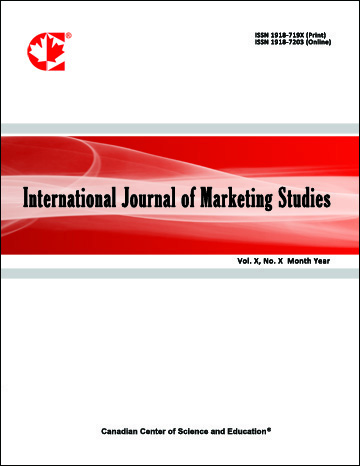Predicting Consumer Behavior: An Extension of Technology Acceptance Model
- Mohammad Hasan Galib
- Khalid Ait Hammou
- Jennifer Steiger
Abstract
The purpose of this study is to examine the predictive power of the technology acceptance model (TAM) on customer’s intention to participate in the social customer relationship management (sCRM) program. Three additional constructs, perceived risk, user satisfaction, and perceived enjoyment were added to the original TAM. The collected data (n=264) were subject to statistical analysis of structural equation modeling, exploratory and confirmatory factor analysis. The study reveals that TAM by itself is not a robust model to predict customer’s intention to participate in the sCRM program. Among the original constructs of TAM, attitude is the only determinant of intention. The impact of perceived usefulness and perceived ease of use was not significant on intention. Among the extended variables, perceived risk is the only variable that significantly influenced intention; perceived enjoyment and user satisfaction did not have any impact on intention. By applying the TAM to the sCRM, this study extends the overall body of the theoretical knowledge surrounding technology acceptance.
- Full Text:
 PDF
PDF
- DOI:10.5539/ijms.v10n3p73
Journal Metrics
Google-based Impact Factor (2021): 1.34
h-index (July 2022): 70
i10-index (July 2022): 373
Index
- Academic Journals Database
- CNKI Scholar
- EconBiz
- Electronic Journals Library
- Excellence in Research for Australia (ERA)
- GETIT@YALE (Yale University Library)
- Harvard Library
- IBZ Online
- Infotrieve
- JournalTOCs
- LOCKSS
- MIAR
- PKP Open Archives Harvester
- RePEc
- ResearchGate
- ROAD
- Scilit
- SHERPA/RoMEO
- Stanford Libraries
- UCR Library
Contact
- Alyssa SunEditorial Assistant
- ijms@ccsenet.org
